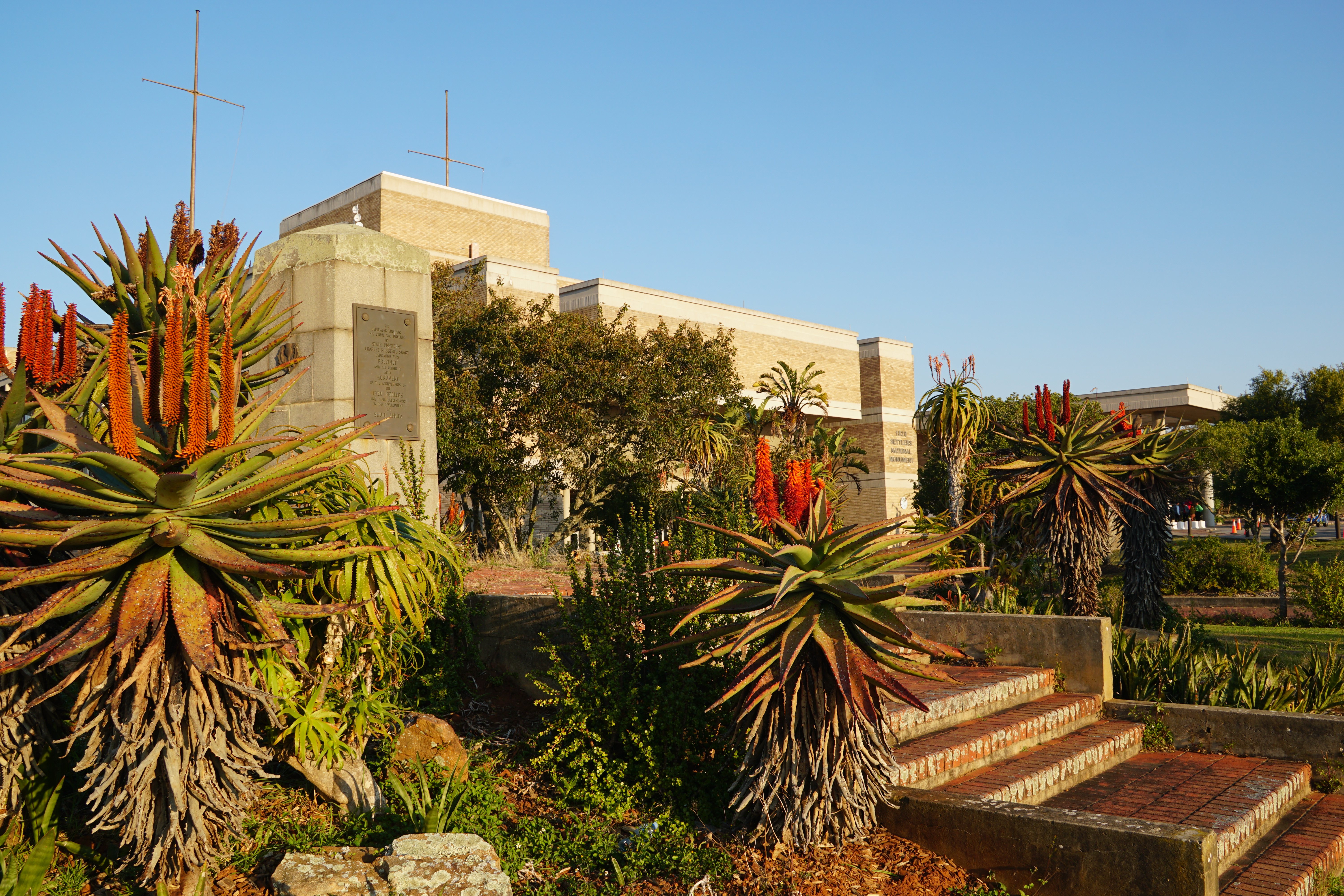
The 1820 Settlers Monument, home to the Guy Butler Theatre, in Makhanda.
“Without contraries,” William Blake tells us, “is no progression.” He certainly wasn’t thinking about the BPYO travelling around South Africa when he penned that line, but it seems to apply well in some regards to our short jaunt up north to Makhanda.
Certainly this place is different from any of the four cities we’ve already visited. For one thing, it’s small: only about 140,000 people live in the town (compared with around 8 million in the Johannesburg-Soweto-Pretoria triangle and 4 million-plus in Cape Town). It’s also a bit remote, lying a 90-minute bus ride from the nearest big airport in Port Elizabeth.
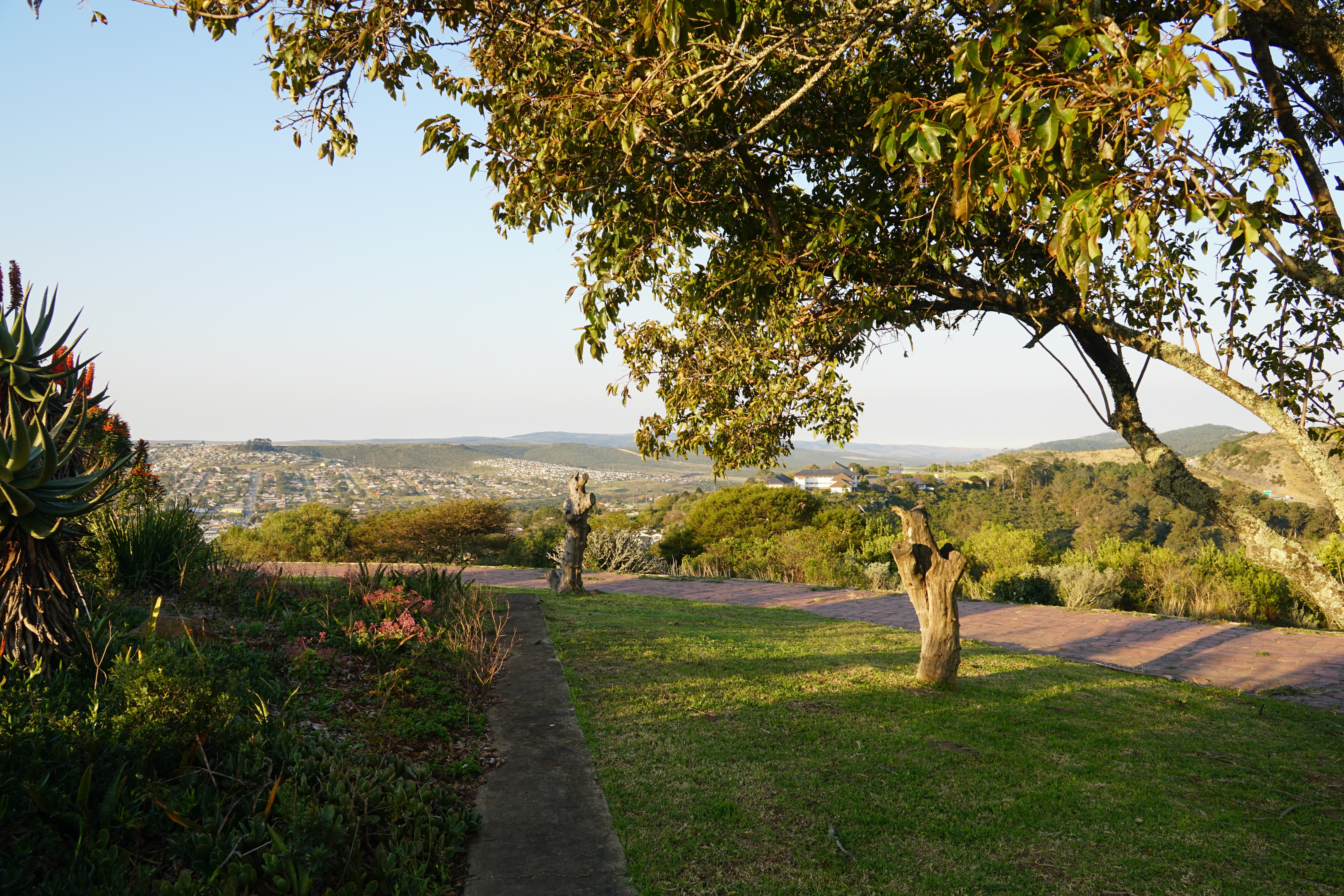
Looking out towards Makhanda.
Why, then, are we here, you might be asking at this point? Well, it turns out that each June Makhanda hosts a national arts festival and the BPYO’s performance at the Guy Butler Theatre on Friday was one of its early highlights. During the orchestra’s rehearsals and concert, other events were unfolding in and around the venue: singing, dancing, instrumental pop-up concerts, photography exhibits, and more, so there was much to see and do if one could grab a few minutes away from our scheduled activities (also, eating and drinking: Makhanda boasted the best coffee I’ve yet had in South Africa).
There wasn’t a lot of downtime, though.
We arrived in town during the wee hours on Thursday, had a chaotic (though tasty) dinner at a local eatery, and then decamped for our accommodations at Rhodes University. To call them Spartan is a stretch: we had electricity, heat, comfortable beds, and a good bit of privacy. But the physical toll of traveling abroad for two weeks is starting to tell. What’s more, water restricitons in this part of South Africa proved frustrating to many.
However, the full itinerary kept everybody focused. On Friday morning, Benjamin Zander and the orchestra rehearsed that night’s Beethoven-Strauss program and then the ensemble participated in an exchange with a local organization called Access Music Program. The last involved playing through some South African music and included by far the coolest-looking instrument we’ve seen on tour: an electric berimbau.
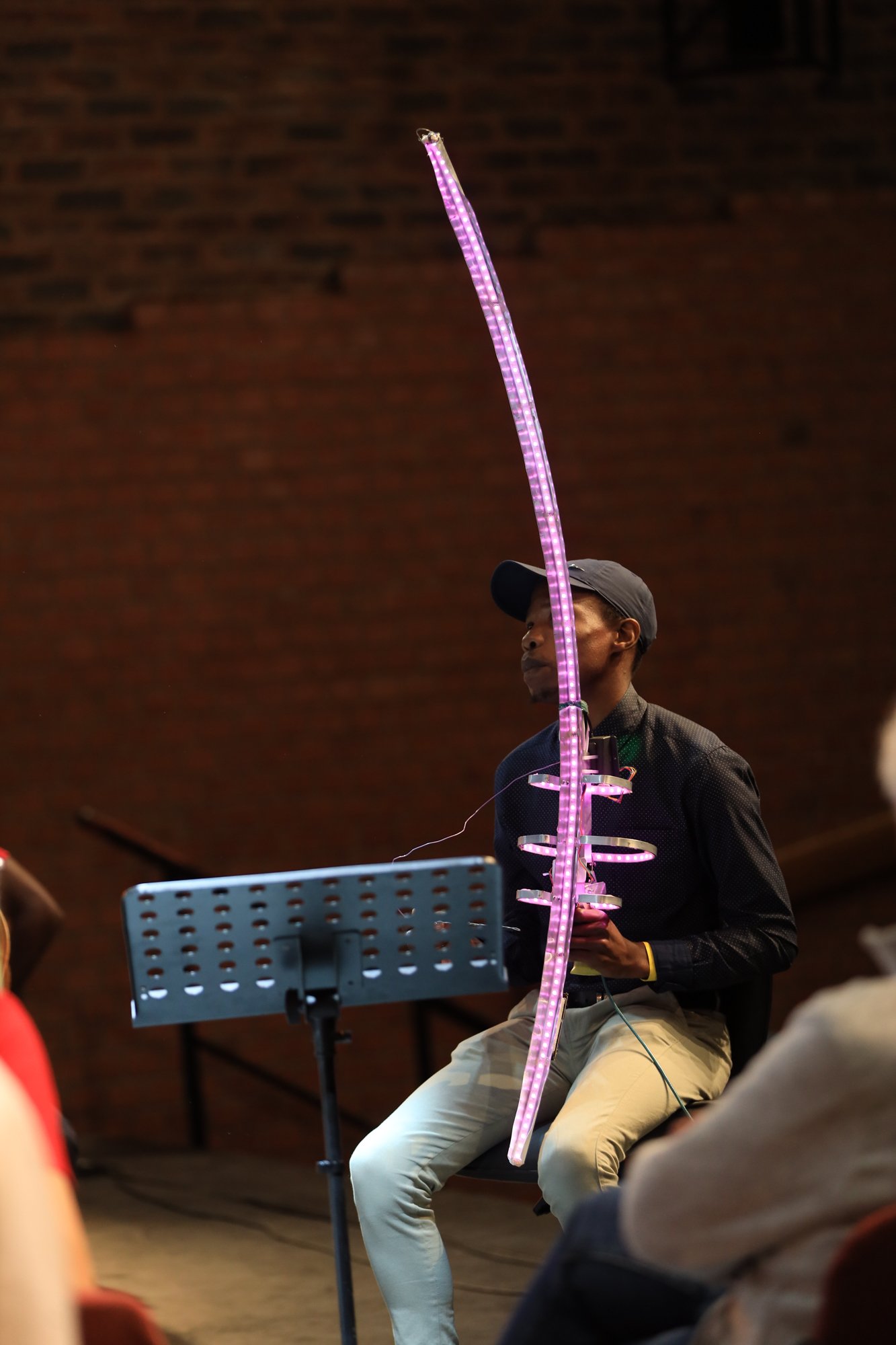
The berimbau at Friday’s side-by-side.
Tired though many in the orchestra were, the night’s concert proved as agreeable an account of this pair of pieces as we’ve gotten in South Africa. Ben led a crisp, vigorous reading of Beethoven’s Fifth, all its lines sharply etched; the piece has gotten better each time it’s been essayed. On Friday, in fact, spots in the finale felt like they were dancing as much as they marched – which is always a good thing in this music.
Ein Heldenleben also fit the venue well. The auditorium in Makhanda is basically the opposite of the Lambrechts hall in Cape Town: the stage is huge, so it can easily hold a Strauss orchestra. But there isn’t any shell, so the sound threatens to go up and back rather than out into the seats.
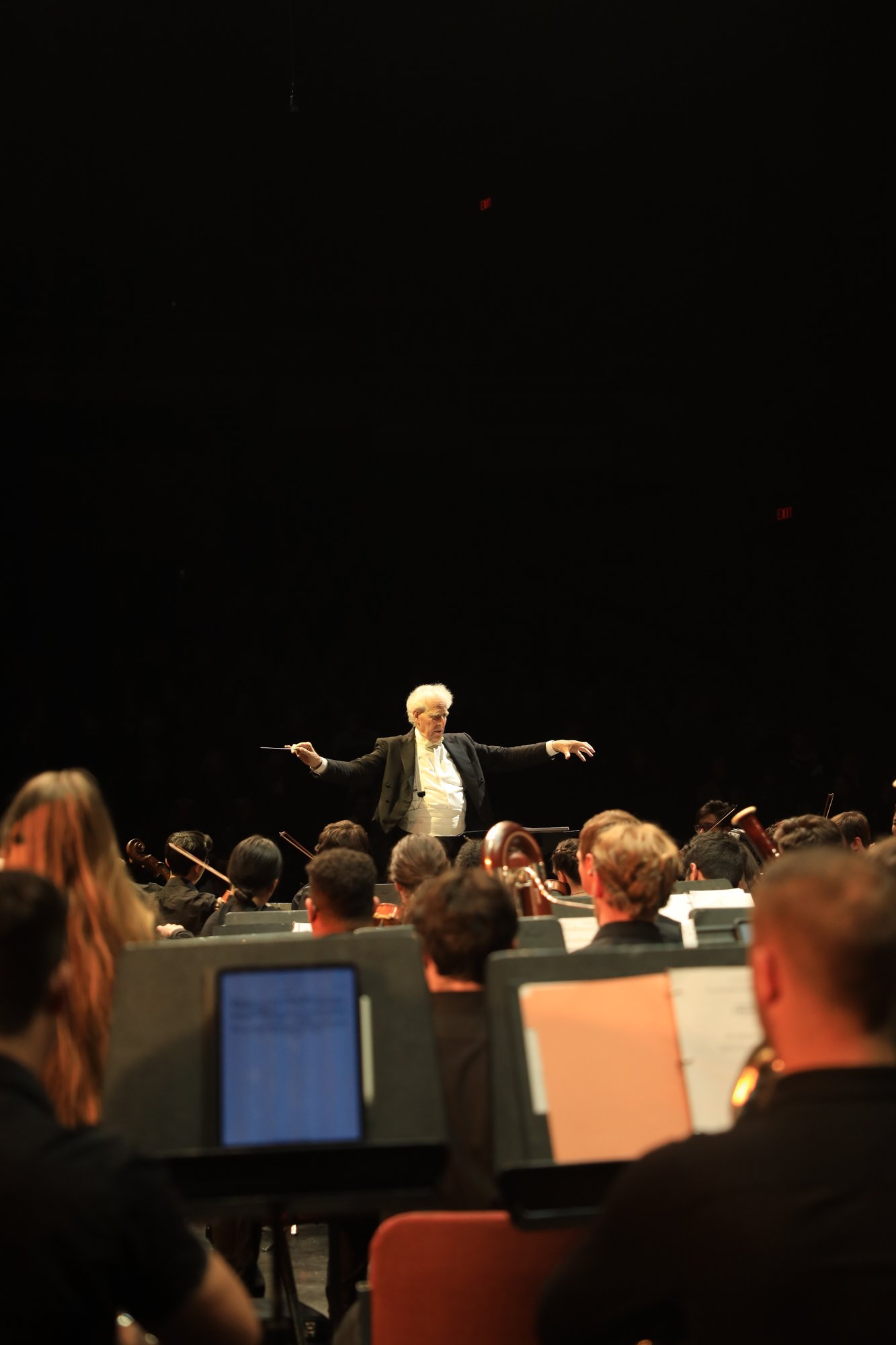
Benjamin Zander and the BPYO take flight at the Guy Butler Theatre on Friday night.
Still, the acoustic is such that you can hear each section of the ensemble clearly. As a result, all of Heldenleben’s moving parts came out. The battle scene, which in the last concert was a touch in-your-face, here emerged impressively balanced, especially in the percussion writing.
Michael Fisher’s solos were, again, the picture of spirit and character, even fresher and freer than they had been a couple of nights before. Honestly, to hear the shifts of color at the start of his final solo, where the descending line subtly changes strings, was breathtaking: it was the aural equivalent of watching one of those spectacular African sunsets we’ve been dazzled by while we’ve been here.
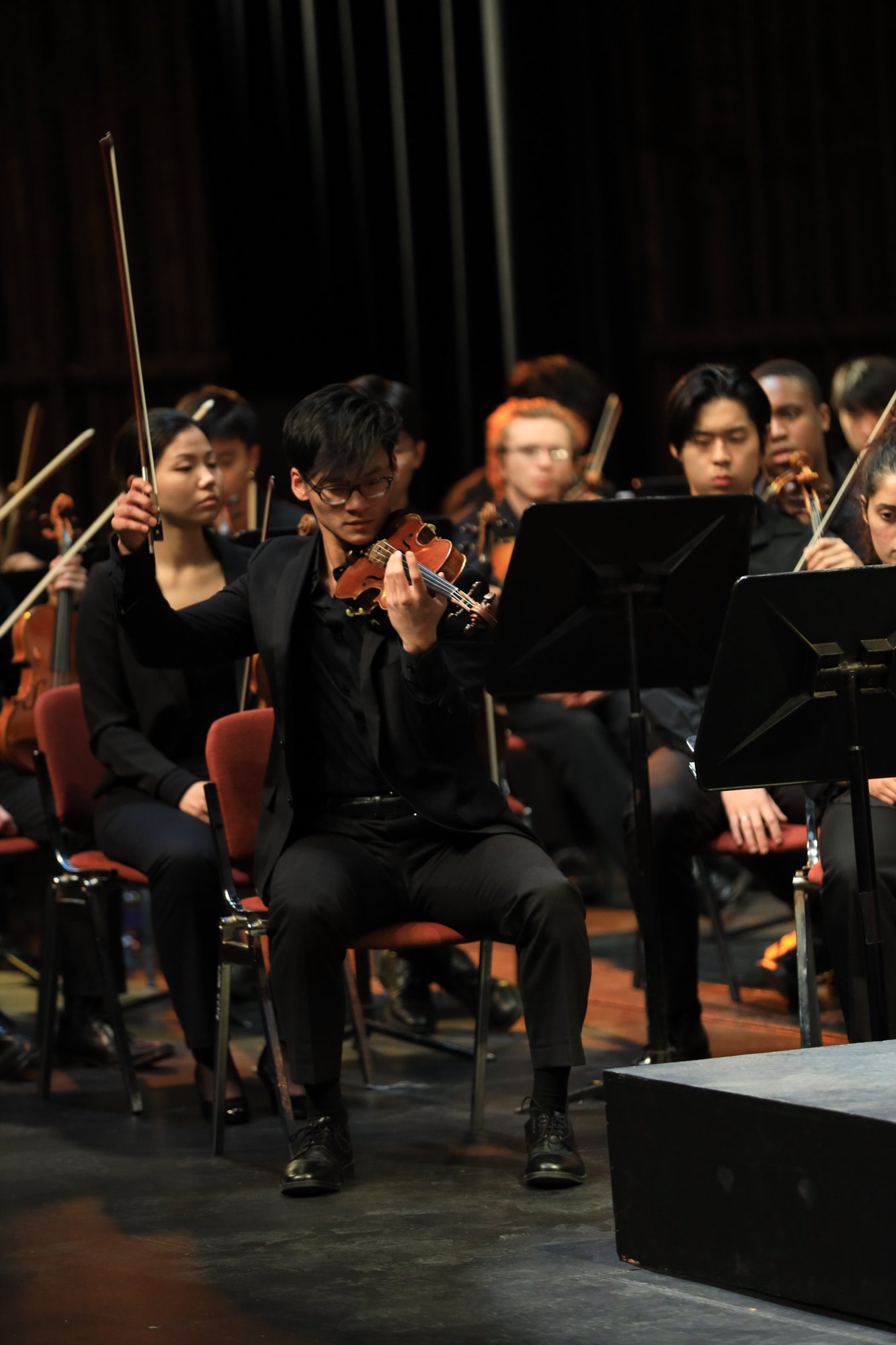
BPYO concertmaster Michael Fisher in action.
Ben presided over the whole enterprise with a sure hand. Tempos were, as usual, smartly judged, as was his pacing of this sprawling piece. The last five minutes – which includes some of the most beautiful music Strauss ever wrote – unfolded with an unhurried rightness I’ll not soon forget.
Though Friday night’s concert was the last outing for a regular tour program, on Saturday we regrouped in Guy Butler for something Ben and the BPYO really should, from now on, include whenever they travel: a family concert. Ben’s a natural at this sort of event, direct, pithy, ever informative. The orchestra, too, playing with a palpable sense of release, turned in a performance right up there with the best things they’ve done all season.
The program provided a welcome overview of the past year, anchored as it was with selections by Beethoven, Bartók, and Tchaikovsky. It also included a bit of regional flavor in the form of Miriam Makeba’s Afro-pop hit “Pata Pata,” for which the BPYO was reunited with Mahler soloist Andiswa Makana. The closer, as always, was “Nimrod,” and, just like that, the musical portion of our trip to South Africa was over.
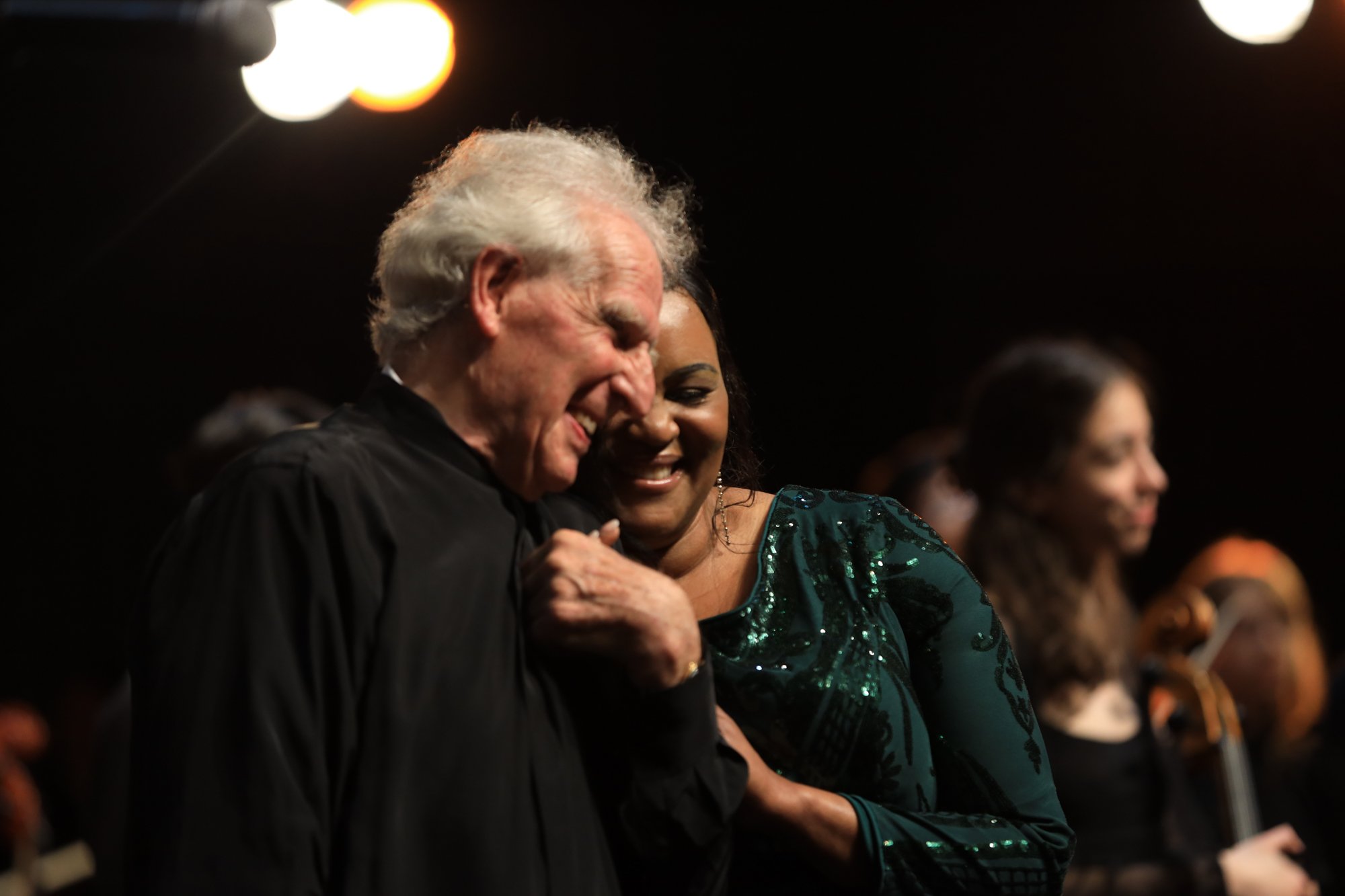
Benjamin Zander and soprano Andiswa Makana during Saturday’s concert.
While, sometimes, the last concerts of these tours end in floods of tears and relief, the emotion most apparent departing Guy Butler for the market on the Village Green and the drive back to Port Elizabeth was joy. Certainly, most of us are pumped to go on a short safari before heading back to America. And, yes, there’s a lot of well-earned satisfaction around here in overcoming the challenges of travel, health, and heavy-duty musical performances.
But my sense is that most of the reason for this sentiment flowed from our experiences in Makhanda. Both of the BPYO’s concerts there were well-attended and well-received. What’s more, the Saturday matinee was a lot of fun. To walk out of the hall amid a sea of smiling, happy faces – one made up of all ages and a variety of backgrounds (cultural and otherwise) – who’d engaged as listeners with the same intensity the orchestra had brought to its playing was simply invigorating.
“Music is the most powerful force for bringing people together,” Ben noted near the end of that concert. So it is and so it did – and in a place that, before a couple of weeks ago, few (if any) of us had ever heard of. Now, like so much else in this extraordinary country, we won’t be able to ever forget it.
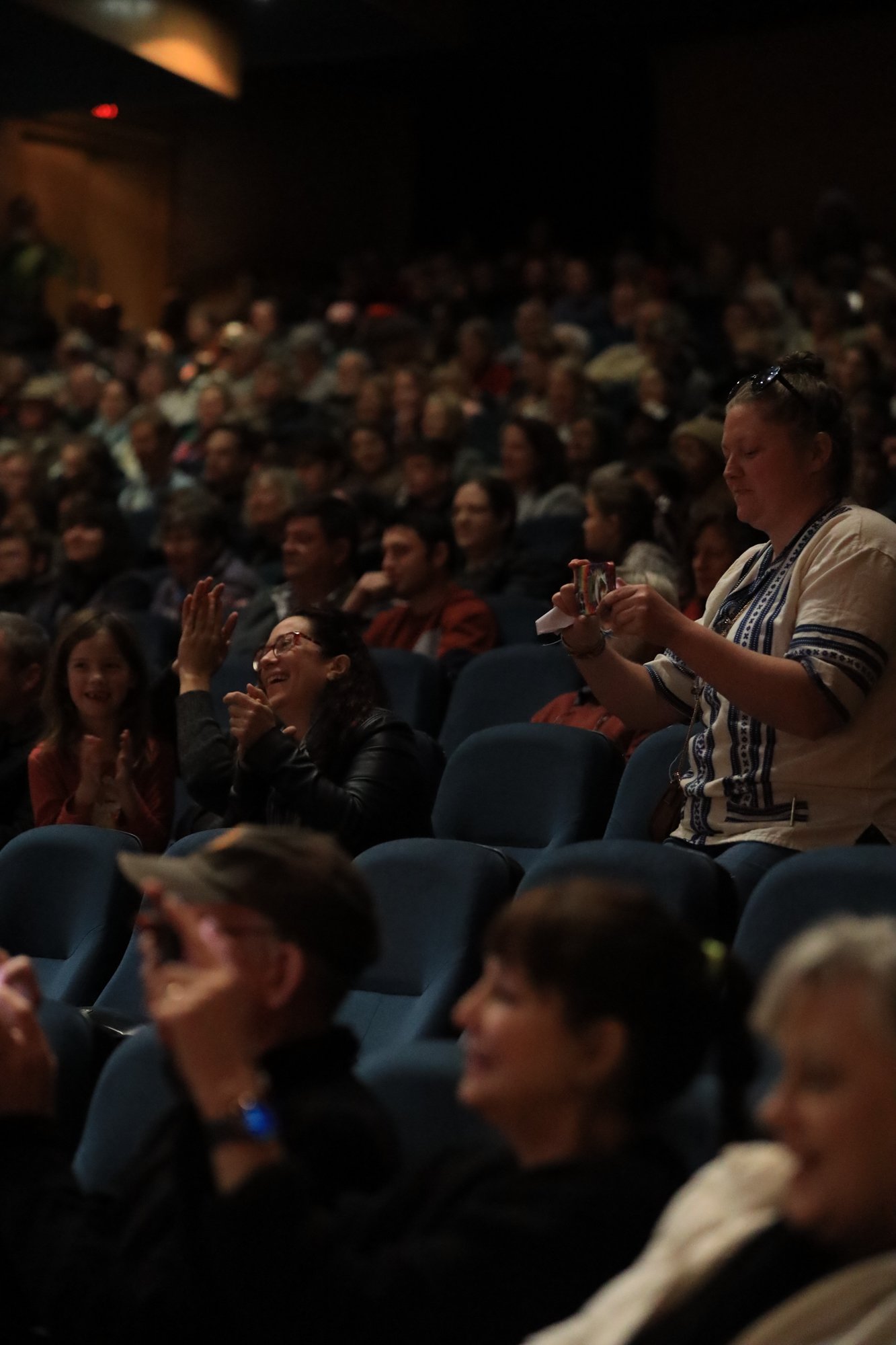
A slice of Saturday morning’s audience in Makhanda.
Photo credits: Paul Mardy and Jonathan Blumhofer.




